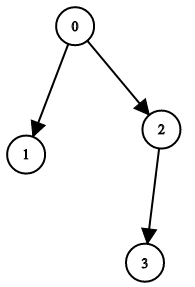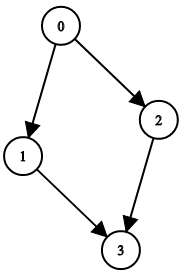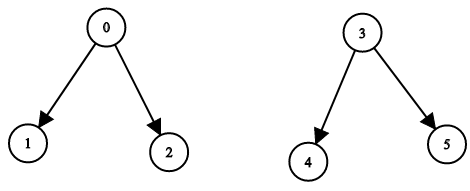You have n binary tree nodes numbered from 0 to n - 1 where node i has two children leftChild[i] and rightChild[i], return true if and only if all the given nodes form exactly one valid binary tree.
If node i has no left child then leftChild[i] will equal -1, similarly for the right child.
Note that the nodes have no values and that we only use the node numbers in this problem.
Example 1:

Input: n = 4, leftChild = [1,-1,3,-1], rightChild = [2,-1,-1,-1] Output: true
Example 2:

Input: n = 4, leftChild = [1,-1,3,-1], rightChild = [2,3,-1,-1] Output: false
Example 3:

Input: n = 2, leftChild = [1,0], rightChild = [-1,-1] Output: false
Example 4:

Input: n = 6, leftChild = [1,-1,-1,4,-1,-1], rightChild = [2,-1,-1,5,-1,-1] Output: false
Constraints:
1 <= n <= 10^4leftChild.length == rightChild.length == n-1 <= leftChild[i], rightChild[i] <= n - 1
class Solution { public boolean validateBinaryTreeNodes(int n, int[] leftChild, int[] rightChild) { Set<Integer> connected = new HashSet<>(); for (int i = 0; i < n; i++) { if (leftChild[i] != -1) { if(!connected.add(leftChild[i])) return false; } if (rightChild[i] != -1) { if (!connected.add(rightChild[i])) return false; } } return connected.size() == n-1; } }

https://leetcode.com/problems/validate-binary-tree-nodes/discuss/517558/JAVA-easy-hashset-solution